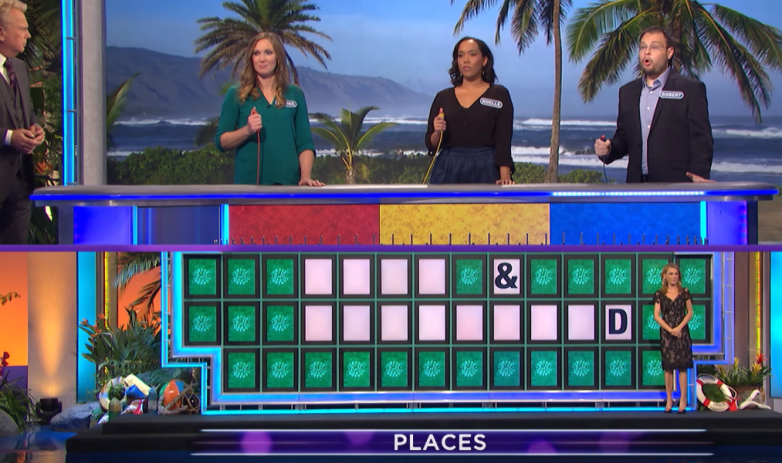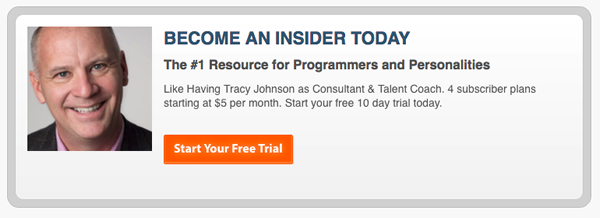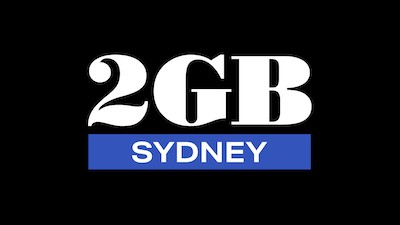5 lessons radio can learn from game shows

If radio created on-air contests that were more like TV game shows, we would have much greater results from games, contests and promotions. The producers of game shows spend a lot of time and money researching what works and building a program that attracts viewers. And if we pay attention, there’s a lot to learn.
The most important thing radio should take from game shows is the play-along factor. Humans love to play games. It’s how we’re wired. And many listeners (not all, of course) are, indeed, human. We fill out Sudoku puzzles, play trivia games, watch game shows and compete for Pictionary bragging rights.
Why?
Simple: Games appeal to the emotion of Greed.
This isn’t the greed you normally think of first. It’s not greed to win cash or prizes, though those incentives can be a powerful attraction. This type of greed appeals to our sense of superiority, of feeling good about ourselves.
Lessons From Game Shows: The Prize?
Prizes are important to on-air games, but only to raise the stakes and add drama to the story created in playing the game. It’s important that the audience is playing for something, but don’t get hung up on building a promotion or game around prizes.
TV game shows figured this out long ago. Can you remember how much money (or prizes) a game-show contestant won? Likely not, because the audience doesn’t really care.
But you probably recall the game itself, and maybe some of the questions and answers.
The Contestants Must Add to Entertainment Value
Producers for successful shows like Wheel of Fortune and The Price is Right screen contestants so they add to the show’s story.
They’re looking for individuals that fit a specific criteria:
- They are enthusiastic and can add energy, personality and fun to the show.
- Contestants should be attractive or interesting-looking, but not beautiful. The goal is to be relatable to the audience so each viewer can see themselves in the contestant.
- And, they should be a little less intelligent than the viewer. The producers want the viewer to solve the puzzle before the contestant.
That third point is key. Their goal is to cause you, the viewer, to think you should be a contestant because “I’m a lot smarter than those people who made it on the show.”
Making the viewer feel good is far more valuable than making the contestant feel great. After all, there are more of them! The show isn’t for the contestant, but for the viewer! See? Greed is good!
And if you don’t believe that contestants are, well, interesting…watch this:
Try to find contestants that fill that same role on your contests. Make sure they sound good, but remember that they’re just the on-air surrogate for the real participant: The listener.
Design the Game For Play Along
The mechanics may be different, but the concept is the same on radio and television. It’s not about the prize. It’s not about the contestant. It’s about the viewer playing along. They’re guessing the answers, trying to figure out the exact prize and competing along with the actual contestants.
On the radio, you should be playing the game for the listener in their car, at home or at work. You’re not playing it for the caller or winner.
Design every contest and every promotion for the non-active participant to play along. When you can engage the audience to interact with content, they’re yours! And it’s addicting.
By the way, that’s why it’s so important to explain the game clearly and simply every time it’s played. The contestant may know how it works, but you’re really concerned about the listener in the car. If they are confused about how it works, they can’t play along.
Play Along Trivia Contests
Many TV game shows are based on trivia. One of the best of all time was Who Wants To Be a Millionaire.
Asking imaginative, challenging questions and revealing the answer a few minutes later can keep listeners glued to a radio show. And sometimes, you don’t even need a prize-or a contestant.
The challenge is framing the game in a creative environment.
Many shows use a simple Impossible Trivia game to get the phone ringing early in the show. A question like, “80% of us do this every morning before leaving for work” challenges listeners and appeals to their curiosity. It may not be the most creative game, but it’s simple, and usually gets response.
Putting callers on with guesses can both infuriate and oddly attract listeners to play vicariously through those active participants. Just like Wheel of Fortune!
That simple idea works for some shows, but it doesn’t engage as many as it could. Another technique that lures more participation is introducing multiple choice options.
The TV series Dateline did this for years. Going into a commercial break, they presented three events that took place in the same year. Four possible answers were provided to make it easy for everyone to guess (have a stake), even if they didn’t know. After the commercials, they reveal the answer.
The brilliance of a simple game like this is that everyone can play because it’s multiple choice. Even if they don’t know the answer, they can still guess.
Playing Games Between Cast Members
Playing along with the show can be fun, and you don’t even have to have a prize. The play along factor gets the audience involved when there’s a spirit of competition between players. Sometimes playful teasing and fun can be more entertaining than playing for prizes. And, it can reveal character.
a couple of games are good examples of this: Heads Up and Are You Smarter Than (Show).
Leave Something Out
This isn’t an actual game, but it takes game theory into account. An effective method for talk show hosts is to state a strong opinion, and make part of your argument, but leave out important supporting information.
The audience is left to fill in the gaps. It’s another way to get them to play along.
Nothing motivates an audience to respond more than a chance to “set you straight,”. As the topic evolves, reveal the “rest” of the story.
The concept is explained in more detail here.
Building Suspense
Games like Millionaire and Deal or No Deal add drama to their offering. They build anticipation by getting the audience invested in the outcome of a game or contestant they don’t really care about. It’s amazing.
Jeopardy is a great example. They play two rounds of the game. In the second round, they raise the stakes by doubling the prize values. Then, they build even more drama to Final Jeopardy where anything could happen. The outcome often changes dramatically. The producers add another layer of interest by luring the viewer into considering how much they would risk.
Conclusion
There are many ways to gamify content on the air. But if you can master just a few of these techniques, it will increase tune-in opportunities.
Games are fun to play, and can be great fun on the air, if you play them properly. Build game theory into your show, contests and promotions.
Tracy Johnson specializes in radio talent coaching, radio consulting for programming and promotions and developing digital strategies for brands.




The problem with games on radio based on trivia is the problem of listeners googling the answers.
There are other types of games that have been played on radio like asking the listener questions ( if they say the word “yes” or no” they lose) and the secret sound game (2CH).
A radio game show may work if planned well.
More games on overnight radio programs ( after midnight) are maybe needed.